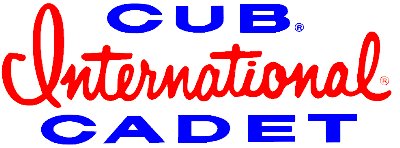This is for a 1975 1650.
In looking things over for the season, and an effort for less vibrations, I see a slight wobble in the driveshaft from the engine to hydro pump.
Having 2 flex discs, 1 one each end, I wonder how much eccentricity is allowed?
As it is I can measure a runout of maybe 1/16" to about 3/32" or 1/8".
I recall some years ago when checking the shaft, it was straight rolling on a flat surface and I can check it again.
Maybe some new flex discs or coupler bushings are in order?
Asking for field guidance before the shopping begins.
In looking things over for the season, and an effort for less vibrations, I see a slight wobble in the driveshaft from the engine to hydro pump.
Having 2 flex discs, 1 one each end, I wonder how much eccentricity is allowed?
As it is I can measure a runout of maybe 1/16" to about 3/32" or 1/8".
I recall some years ago when checking the shaft, it was straight rolling on a flat surface and I can check it again.
Maybe some new flex discs or coupler bushings are in order?
Asking for field guidance before the shopping begins.























































